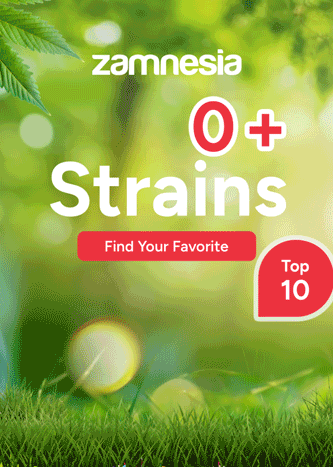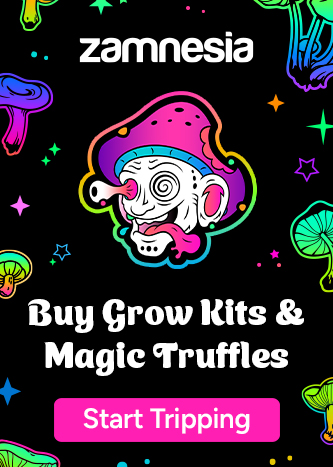Can CBD affect your appetite?
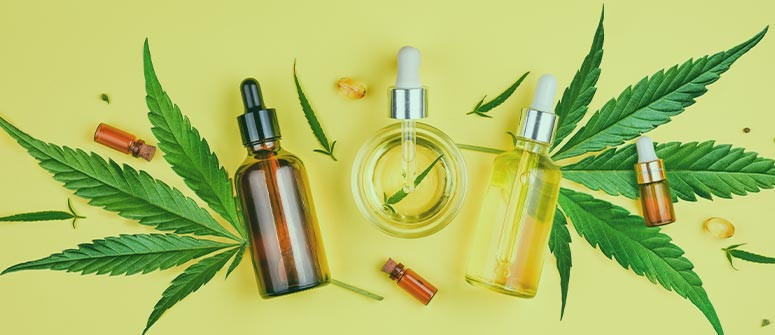
Published
While most cannabis users are familiar with the surge in hunger experienced after imbibing THC, does CBD have the same effect? Here we explore the ins and outs of CBD's potential to both increase and suppress appetite.
Contents:
CBD has experienced a massive surge in interest among medical professionals and researchers in recent years. In a select few cases, the cannabinoid is even approved as a medical treatment—such as for severe cases of treatment-resistant epilepsy. Moreover, CBD is being studied for its therapeutic potential in relation to a host of other conditions and symptoms, including pain, nausea, anxiety, and depression—all without inducing a “high”.
But what about its effect on appetite? After all, smoking or ingesting cannabis is associated with the munchies. Does CBD have the same consequence? Let's break down what we currently know about cannabidiol’s potential to both reduce and stimulate appetite.
How does appetite work?

Appetite is the desire to eat food. It is distinguishable from hunger, which is the body's biological reaction to a lack of food. You can have an appetite even if you are not hungry, and vice versa. Appetite will rise and fall due to many factors, including exaggerated emotions, seeing or smelling food, routine, health conditions, medications, and environmental factors.
How does cannabis affect appetite?
An increase in appetite is one of the most well-known effects of cannabis. Commonly known as "the munchies", history tells us that people have been aware of cannabis’ appetite-stimulating properties for thousands of years.
The cannabinoid tetrahydrocannabinol (THC) is the main way in which cannabis may affect eating habits. It does so by partially binding to and activating CB1 receptors in the basal ganglia, the limbic forebrain, and the hypothalamus and hindbrain, where it may boost eating pleasure, improve food palatability, and regulate food intake, respectively.¹
Furthermore, the cannabinoid binds to receptors in the small intestine and stomach, where it may assist in the release of ghrelin—an appetite-stimulating hormone.
How you consume THC may affect how intense your munchies will be, as well as what kind of food you'll crave, be it salty, sour, sweet, or bitter. This is primarily due to differences in potency and bioavailability/absorption among different consumption methods, such as smoking, dabbing, or eating edibles.
How does CBD affect appetite?

By activating CB1 receptors, THC overrides the signals that usually tell our body we're full. However, CBD is different; though it affects the activity of CB1 receptors to some degree, it does not activate them in the same way as THC.
Instead, CBD works to boost the endocannabinoid system's overall efficiency. The endocannabinoid system, or ECS, is a vast network within our bodies that is responsible for maintaining balance of fundamental biological mechanisms such as mood and appetite.
Can CBD increase appetite?
With that said, can CBD help to boost your appetite in a meaningful way? Although it doesn't bind directly to CB1 receptors, this is not to say that CBD has nothing to offer regarding this issue. Current research indicates that CBD may indeed impact our eating habits, but more indirectly.
Numerous studies have been conducted on the subject, though they primarily involve animal test subjects. The results have also been quite varied, which does not help to clarify matters.
For example, a 2012 comparative study conducted on lab rats reports that the use of CBD successfully reduced the appetite of the test subjects.² In contrast, research conducted in 2013 demonstrates how CBD may positively affect nausea and vomiting symptoms, allowing for a better appetite.³
The overall conclusion seems to be that more human trials are required before medical science can make any definitive judgement on what effect, if any, CBD has on appetite.
Can CBD increase appetite in cats and dogs?
Like in humans, CBD does not directly stimulate hunger or appetite in pets. The cannabinoid may, however, work to kickstart the endocannabinoid system when appetite is lagging due to disease or distress.
The main reasons for decreased appetite in pets include vomiting, pain, indigestion, and other tummy troubles. Thus, CBD may help to stimulate hunger in pets by reducing discomfort, calming their mind, and allowing their body to function efficiently.
Is CBD an appetite suppressant?
There is little scientific evidence to support using CBD for weight loss or as an appetite blocker.⁴ Nonetheless, it may still have some use in maintaining and managing a healthy weight. Many people eat more when stressed, in pain, nervous, or overstimulated. Therefore, if CBD can play a part in helping to ease those issues, it stands to reason that it may help to combat overeating.
For example, a study of 103 psychiatric patients who were given CBD reports that anxiety was reduced and sleep quality improved in most participants in the first month.⁵
In other tests, sleep deprivation has been demonstrated to increase the release of the aforementioned hormone ghrelin, which increases hunger and appetite. Therefore, if CBD can promote better sleep, there could be a reduction in the release of ghrelin and a subsequent decrease in appetite.
If you are struggling with weight gain due to being unable to exercise as a result of injury, aches, or pains, limited evidence suggests that CBD's potential effect on inflammation may assist in soothing muscles, supporting energy levels, and getting you moving again.⁶
CBD and eating disorders

CBD may indirectly help those suffering from eating disorders through its impact on hormones that regulate mood. However, it is important to remember that at this time, studies on CBD and eating disorders are limited, and the long-term effects of cannabidiol remain unknown.
CBD and anorexia nervosa
Anorexia nervosa is characterised by self-starvation, weight loss, and a distorted body image. Through rigid control of food intake, the body is deprived of the essential nutrients it requires to operate normally, which can result in severe illness and death.
CBD may help to improve the mental state associated with anorexia by indirectly impacting anxiety and depression. A 2014 review indicates that CBD has therapeutic properties and could be used as an anti-anxiety and antidepressant-like compound.⁷
This hypothesis is supported by a 2015 investigation that suggests brain networks regulating appetite can be upset by chronic stress or anxiety in a way that can promote obesity or an eating disorder.⁸
CBD and binge eating disorder
Binge eating disorder (BED) is characterised by repetitive episodes of devouring large quantities of food. Sufferers often feel angry, depressed, ashamed, and guilty following a binge. CBD may diminish food cravings by mediating the body's reward system and reducing cravings.
A 2001 study shows that CBD could increase levels of leptin—a hormone that makes us feel full or satisfied—in the brain. CBD has also been found to impact the shifting of white fat to brown fat in a process called "fat browning".⁹ Fat browning promotes a healthier metabolism. As the endocannabinoid system plays a crucial role in insulin regulation, CBD may support this action by giving it an additional boost.
CBD and bulimia nervosa
BED, anorexia, and bulimia all appear to have strong links to body dysmorphia. Bulimia nervosa involves a cycle of bingeing and purging, where sufferers experience undeniable and excessively negative body image problems. As we have previously explored, CBD may help to improve the mood of the sufferers by impacting anxiety. The hope is that, in the long term, less worrying may encourage a healthier attitude toward food.
THC and eating disorders
Research on the role of cannabis as an appetite stimulant for cancer or HIV/AIDS patients has validated the usefulness of THC in particular. However, when it comes to anorexia nervosa, there is only a limited number of studies upon which to rely. We have already established that THC gives us the munchies, so surely it would help encourage appetite in those suffering from anorexia in particular?
A 2011 Belgian study suggests noticeable imbalances within the endocannabinoid system of those suffering from eating disorders.¹⁰ The study implies that THC (and CBD) could help to correct these deficiencies, bringing a person back toward a healthier, balanced state.
Anorexia sufferers appear to lose the capability to feel pleasure in activities such as eating. With this in mind, there is evidence to suggest that THC can boost the satisfaction we get from eating by increasing our sensitivity to smells and tastes.¹¹
These are just a handful of small-scale studies. However, the broader medical community remains largely unconvinced on the topic, and with good reason. The ability of those with anorexia to resist the temptation to eat to such a high degree means that simply stimulating appetite may not be enough for them to overcome the neurobiological issues heavily entwined with the disorder.
Using CBD as an extra support for a healthy appetite

CBD oil and supplements are not magic bullets, but they could help you to build habits that encourage a healthy appetite while supporting a balanced state. Studies on CBD and appetite are ongoing, as are investigations into its other potential advantages. Here are several straightforward ways that you can promote a healthy appetite alongside the use of CBD.
Consume omega fatty acids
Omega fatty acids have many benefits; one being a positive influence on weight loss.¹² Focus on omega-3 fatty acids in oily fish, nuts, and hemp seeds. Cold-pressed hemp seed oil is an excellent omega-3, antioxidant, and plant protein source. Add CBD to the equation, and you’ve got a powerful hemp-based ally.
Stay active
Exercising will burn calories, which is great for weight loss, but it also allows you the freedom to indulge in sweet treats a little more often. If you struggle to eat regularly, exercise will help you here too. Regular cardiovascular exercise releases endorphins that make you feel good and prompt the body to refuel.
Eat at preset times
Having no structure when it comes to eating is the quickest way to form unhealthy habits. With busy schedules, eating is usually the first activity we forget to prioritise. Instead, try to eat at the same time throughout the day. This can stop us from bingeing and trying to satiate our hunger with snacks.
Diversify your meals
This will not only stop you from getting bored, but will ensure an even intake of all food groups. A healthy eating pattern emphasises adequate intake of plant foods, protein, low-fat dairy, vegetable oils, and nuts, while limiting processed foods, fat, and sugar.
Drink enough water
Science indicates that water can help with weight management by suppressing the appetite, flushing the body of toxins, boosting metabolism, and making exercise more manageable. Around 60% of your body is water, meaning it plays a role in basically every bodily function. Essentially, the more hydrated you are, the more efficiently your body will work.
Common CBD side effects

CBD's side effects are typically mild, and include gastrointestinal issues, dry mouth, drowsiness, reduced appetite, nausea, and interaction with other medications. With any questions regarding CBD intake, consult with your doctor or pharmacist.
Feeling sick after taking CBD?
Cannabidiol comes in many forms, including CBD oils, gummies, tinctures, and vape cartridges, meaning that the amount of cannabinoids absorbed by the body can vary dramatically. It is not improbable for those who ingest CBD supplements to experience nausea, depending on how sensitive the person is to CBD, and the specific dose. If this happens to you, consider lowering your dose or changing the form of your supplement.
Top 3 CBD strains to boost your appetite
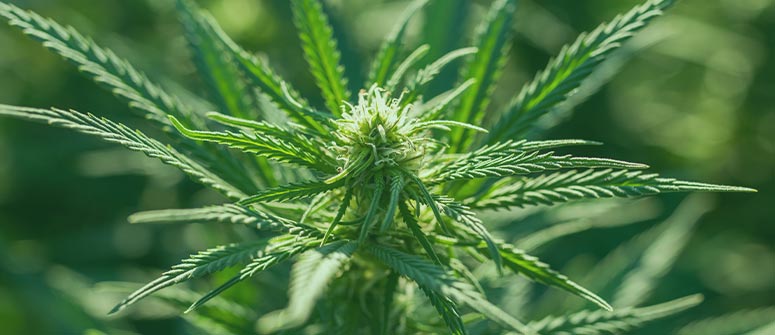
CBD is an excellent choice for those wanting to keep a clear head but still indulge in cannabis. Unlike THC, CBD offers non-intoxicating effects that lend themselves to various uses. Here are some prominent CBD strains that are reliable and easy to find.
1. Joanne’s CBD
Joanne’s CBD contains around 18% CBD and less than 1% THC. As a result, users can expect a wholesome experience without any intoxicating effects, alongside flavour notes of sweet citrus and spice. If you’re trying to subtly take the edge off in hopes of increasing your desire to eat, perhaps consider puffing on Joanne throughout the day.
2. Stress Killer Automatic CBD
For those seeking a bit of euphoria alongside the soothing embrace of CBD, Stress Killer Automatic CBD is here to satisfy. Containing 11% THC and high CBD levels, a few tokes of this strain will get your mind and body relaxed and ready to enjoy a healthy snack. The strain’s forward citrus notes will go the extra mile to get you salivating and ready to fuel up.
3. CBD Fix Autoflowering
Another CBD-rich strain (7–15%) featuring almost no THC, CBD Fix Auto will do just that—satisfy your desire for a flavourful, well-rounded CBD cultivar. Though she won’t get you high, she’ll offer just the right amount of clear-headedness to prepare and enjoy a nice meal. And while you do, you’ll be treated to refreshing, earthy flavour notes with a hint of spice.
CBD and appetite — A complex relationship
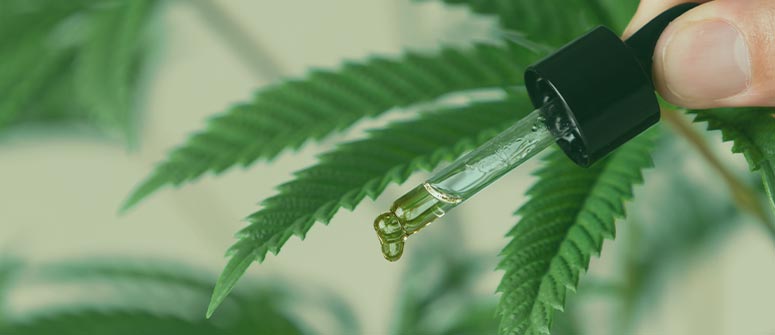
Researchers are beginning to understand CBD's complex interaction with the body, particularly the endocannabinoid system. Early results suggest that, while it works differently than THC, CBD may impact areas of the body related to appetite. Chiefly, CBD may assist the body in maintaining homeostasis, returning the body to a baseline state that, consequently, could positively impact imbalances in appetite.
References:
1. Pacher P. The Endocannabinoid System as an Emerging Target of Pharmacotherapy. Pharmacological Reviews. 2006;58(3):389-462. doi:10.1124/pr.58.3.2
2. Farrimond JA, Whalley BJ, Williams CM. Cannabinol and cannabidiol exert opposing effects on rat feeding patterns. Psychopharmacology. 2012;223(1):117-129. doi:10.1007/s00213-012-2697-x
3. Bolognini D, Rock E, Cluny N, et al. Cannabidiolic acid prevents vomiting in Suncus murinus and nausea-induced behaviour in rats by enhancing 5-HT1A receptor activation. British Journal of Pharmacology. 2013;168(6):1456-1470. doi:10.1111/bph.12043
4. Rock E, Bolognini D, Limebeer C, et al. Cannabidiol, a non-psychotropic component of cannabis, attenuates vomiting and nausea-like behaviour via indirect agonism of 5-HT1A somatodendritic autoreceptors in the dorsal raphe nucleus. British Journal of Pharmacology. 2012;165(8):2620-2634. doi:10.1111/j.1476-5381.2011.01621.x
5. Shannon S. Cannabidiol in Anxiety and Sleep: A Large Case Series. The Permanente Journal. 2019;23. doi:10.7812/tpp/18-041
6. Rojas-Valverde D. Potential Role of Cannabidiol on Sports Recovery: A Narrative Review. Frontiers in Physiology. 2021;12. doi:10.3389/fphys.2021.722550
7. Schier A, Ribeiro N, Coutinho D, et al. Antidepressant-Like and Anxiolytic-Like Effects of Cannabidiol: A Chemical Compound of Cannabis sativa. CNS & Neurological Disorders - Drug Targets. 2014;13(6):953-960. doi:10.2174/1871527313666140612114838
8. Hardaway JA, Crowley NA, Bulik CM, Kash TL. Integrated circuits and molecular components for stress and feeding: implications for eating disorders. Genes, brain, and behavior. 2015;14(1):85-97. doi:10.1111/gbb.12185
9. Di Marzo V, Goparaju SK, Wang L, et al. Leptin-regulated endocannabinoids are involved in maintaining food intake. Nature. 2001;410(6830):822-825. doi:10.1038/35071088
10. Gérard N, Pieters G, Goffin K, Bormans G, Van Laere K. Brain Type 1 Cannabinoid Receptor Availability in Patients with Anorexia and Bulimia Nervosa. Biological Psychiatry. 2011;70(8):777-784. doi:10.1016/j.biopsych.2011.05.010
11. Soria-Gómez E, Bellocchio L, Reguero L, et al. The endocannabinoid system controls food intake via olfactory processes. Nature Neuroscience. 2014;17(3):407-415. doi:10.1038/nn.3647
12. Safaeiyan A, Ostadrahimi A, Sanayei M, Rasmi Y, Taraghijou P. Effect of omega-3 fatty acids on appetite, energy and macronutrient intake and body weight in obese adults: a randomized clinical trial. Progress in Nutrition. 2018;20(2-S):203-209. doi:10.23751/pn.v20i4.5481
